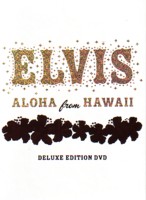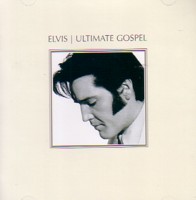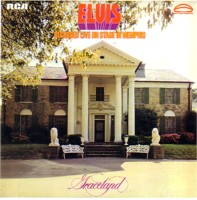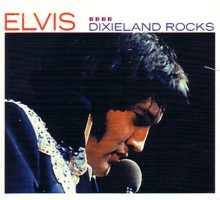Dead
Celebrities Elvis Lives--In Merchandising, At Least
Lisa
DiCarlo, Forbes.com, 10.28.04
When
Elvis Presley died in August 1977, The Washington Post wrote,
"Part of his attraction was that the '50s teenagers viewed
him as epitomizing everything they thought their parents feared
they would become--cocky, slick, brash, tough, black-leather-clad,
motorcycle straddling, stiletto-shoed."
Those
1950s teenagers are now eligible for AARP membership, so the
company responsible for selling his legacy must appeal to
younger customers, er, fans. This year, revenue for Elvis
Presley Enterprises, the for-profit business owned by the
King's daughter Lisa, is flat at $40 million.
While
that's an astounding figure for a musician who has been dead
for 27 years, growth would be nice. EPE's recent and forthcoming
ventures show its efforts to expose a younger crowd to Elvis.
"We've been aware of the aging challenge since we opened Graceland
in '82," says Jack Soden, president and chief executive of
Memphis-based EPE.
It's
hard to know the demographic of Elvis fans overall but Soden
claims that half of the 600,000 annual visitors to Graceland
are under 35. But Graceland is only one piece of the Elvis
empire. EPE and its first master licensee will launch a line
of clothing and apparel in 2005. The line, designed by Paul
Guez, the founder of Sasson Jeans, will be geared toward young,
contemporary men and women. EPE has given CBS, a unit of Viacom
(nyse: VIAb - news - people ), the green light for two Elvis
specials next year, one of which is a biopic.
It
authorized Broadway producer Jonathan Pollard to do All Shook
Up, a musical based on Elvis' music, next year. This past
summer, EPE let Miller Brewing feature an Elvis cover from
Rolling Stone magazine on millions of beer cans. "We want
to introduce Elvis to new fans without reinventing him," says
Soden. One of the ways to introduce Elvis is to license his
name and image. While only 2% of proposals lead to a licensing
deal, there is no shortage of merchandise: EPE has over 100
licensees who invoke Elvis to sell everything from American
Greetings (nyse: AM - news - people ) cards to Zippo lighters.
David
Neale, 55, a member of two European Elvis fan clubs, says
the endless stream of sometimes cheesy merchandising cheapens
the King's legacy. But Soden says it's a matter of survival.
"The fact is, if we don't participate, we'll cede the market
to infringement because the demand [for Elvis merchandise]
is there." He says that when EPE pulls back on its merchandising
programs, it sees a corresponding increase in bootleg merchandise.
EPE
helped establish a "rights to publicity" statute in Tennessee,
now being adopted elsewhere in the U.S., that give a person,
entity or organization the right to all publicity surrounding
a celebrity. "I don't feel defensive about our licensing,"
he says, "because we risk being ripped off if we don't do
it ourselves." Sometimes EPE gets lucky, as when The Walt
Disney Company (nyse: DIS - news - people ) wanted to use
Elvis songs and Elvis' picture in the 2002 hit kiddie film
Lilo & Stitch. In it, the extraterrestrial Stitch is a huge
Elvis fan, and carries his picture. Disney paid an upfront
licensing fee, but EPE didn't push for a slice of the film's
profits. "If we started holding out for a cut of profits,
they would have turned the girl into a Don Ho fan," says Soden
of Lilo, the little Hawaiian girl character.
Fortune
also smiled on the fashion runways recently. High-end design
house Dolce & Gabbana held an Elvis-themed fashion show in
Milan, attended by his ex-wife Priscilla, daughter Lisa and
granddaughter Riley. Soden says such highbrow events help
elevate the image, and that's important because "You don't
have to go far to find some snob who thinks Elvis is a blue-collar
phenomenon," he says. Will EPE's efforts bring in a new, younger
audience?
Maybe.
But the merchandising hoopla often drowns out the fact that
Elvis was a musician. But while his music helped launch rock
and roll, it isn't associated with so-called classic rock
and isn't played on classic rock radio stations. Sirius Satellite
Radio (nasdaq: SIRI - news - people ), however, has launched
an all-Elvis station. At the end of the day, Elvis fans will
buy whatever they can get their hands on. And that, after
all, is the point of EPE.
Says
Shelby Singleton Jr., the president of Sun Entertainment Holding
(otc: SETHF - news - people ), whose Sun Records label discovered
Elvis, "They're not a charity."
Elvis
is still The King
Elvis
Presley is still king of the dead celebrity earners with an
annual income of £21.8 million, a new report reveals.
The
rock níroll legend came number one in the Forbes.com list
of stars who still rake it in from beyond the grave. Peanuts
cartoon creator Charles Schulz was in second place with an
annual income of £19.1 million, followed by Lord of the Rings
author J.R.R Tolkien in third place with £12.5 million.
Presleyís
vast earnings go to Elvis Presley Enterprises which is owned
by his daughter Lisa Marie. The iconís income last year was
generated by admissions to Graceland, licensing and merchandising.
The starís manager famously sold the rights to the singerís
pre-1973 recordings to the RCA record company for just £2.7
million.
Even
though it is over 27 years since the 42-year-old singer died
of a heart attack, the Elvis ďbrandĒ could earn even more
money in future. It will be pitched at a new generation of
fans via a new clothing line and a Broadway musical.
The
top 10 deceased celebrities are:
1
Elvis Presley 40 million
2
Charles M. Schulz 35 million
3
J.R.R. Tolkien 23 million
4
John Lennon 21 million
5
Theodor "Dr. Seuss" Geisel 18 million
6
Marilyn Monroe 8 million
7
George Harrison 7 million
8
Irving Berlin 7 million
9
Bob Marley 7 million
10
Richard Rodgers 6.5 million
The
criteria for making our list are simple. A person's estate
must pull down a minimum of $5 million annually. How does
a deceased person earn money? For musicians like John Lennon,
the bulk of it comes from worldwide publishing royalties.
He and Paul McCartney co-wrote most Beatles songs, and they
get a cut every time a song is played on the radio stations
of Viacom's Infinity Broadcasting, sold on a CD, used in a
film or covered by another artist. (Spotlight/Article,
Source: Yahoo News)
|







